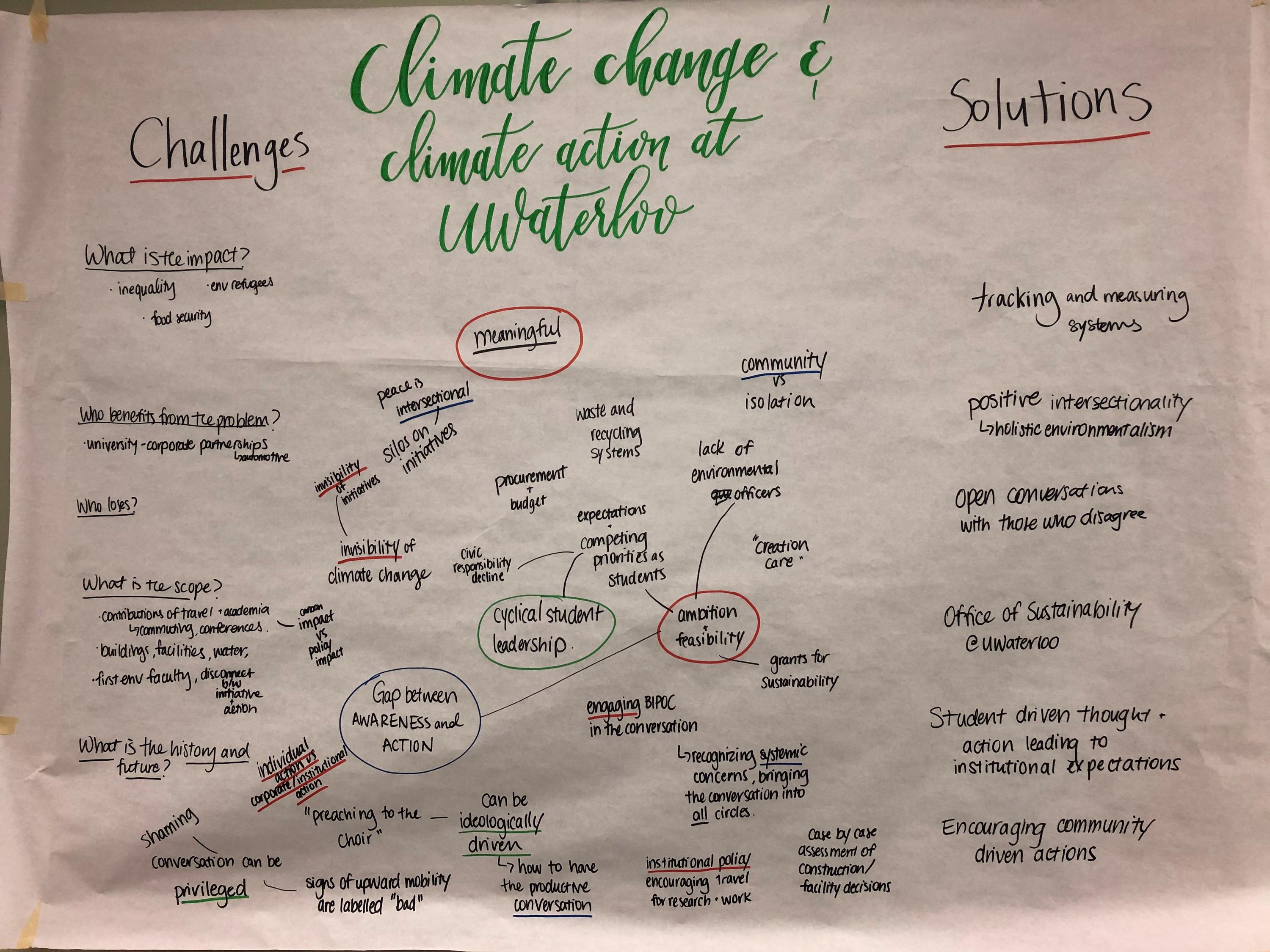On Monday, December 9, the Centre for Peace Advancement helped kick off Kindred Credit Union’s 12 Days 4 Good social media campaign for 2019. 12 Days 4 Good is engaging partners across Waterloo Region by having each of them to designate a day for an act of good that aligns with one of the central themes of this year’s campaign: affordable housing, climate action, or food security.
The Centre for Peace Advancement team chose to focus on climate action at the University of Waterloo, and brought a systems-thinking lens to our act of good by drawing on our experience working with students on the Map the System competition.

Our second expert of the day was Kate Pearce, Waterloo Global Science Initiative’s Community Relations Manager. Kate shared with us her tools and methods for engaging the public in conversations about climate change, and how sharing perspectives is important for community growth and activism.
Lastly, we heard from Conrad Grebel University College’s Director of Operations Paul Penner and Dean Troy Osborne. Paul and Troy discussed how climate action proposals are being prioritized as Grebel embarks on a new strategic planning process, and the importance of encouraging students, faculty, and staff to spearhead initiatives of their own.

Our goal—and act of good—in beginning to map the system of climate action at the University of Waterloo was to inspire others to pursue change at a systemic level. Although it takes more than a few hours, systems thinking tools enable communities to not only understand complex and nuanced problems in new ways, but to identify actionable steps they can take to make a positive impact on these challenges.
If you are interested in applying systems thinking to a complex problem of your own, consider competing in Map the System!